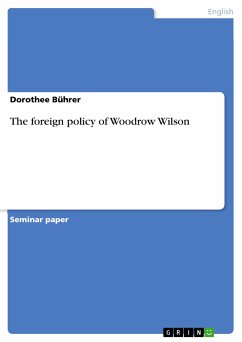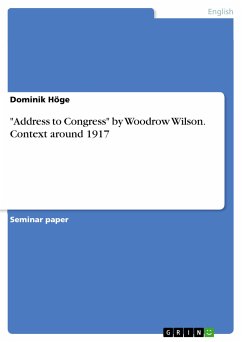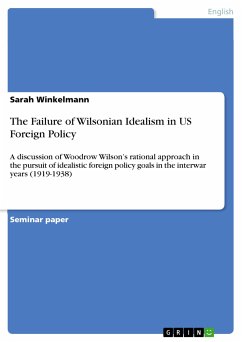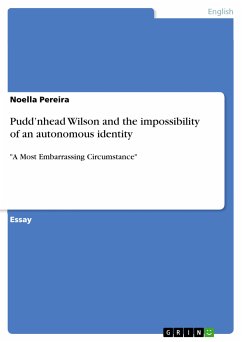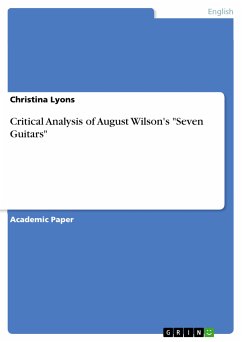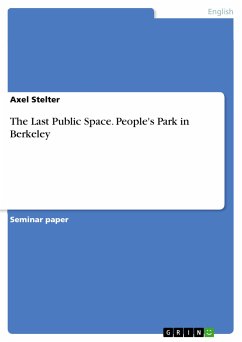Seminar paper from the year 2006 in the subject American Studies - Culture and Applied Geography, grade: 1,3, Martin Luther University, language: English, abstract: Since the foundation of the United States, there were different concepts and principles in American Foreign Policy which changed throughout the centuries. While these concepts stayed relatively the same until the beginning of the 20th century, they changed rapidly during the presidency of the democrat Woodrow Wilson. He was the 28th President of the United States from 1913 to 1921 and contributed to that change in a decisive way. This paper shows which concepts and principles conducted Wilson and influenced his Foreign Policy. To work out these concepts and principles I concentrate on two of Wilson’s speeches after having presented the basic concepts that were of importance until 1913. Both speeches are outstanding declarations of his presidency. The War Message from April 1917 describes the end of American neutrality towards the European powers. It contains key sentences like “the world must be made safe for democracy” which were often cited later on. The second key document I examine is the Fourteen Points Speech of January 1918, which became Wilson’s most famous speech. It constitutes the first statement about war aims of the Allies and therefore gives further information about Wilson’s principles. This is followed by a presentation of the principles I found in these documents completed by some aspects of the scholarly discourse as well as arguments of Wilson’s opponents.
